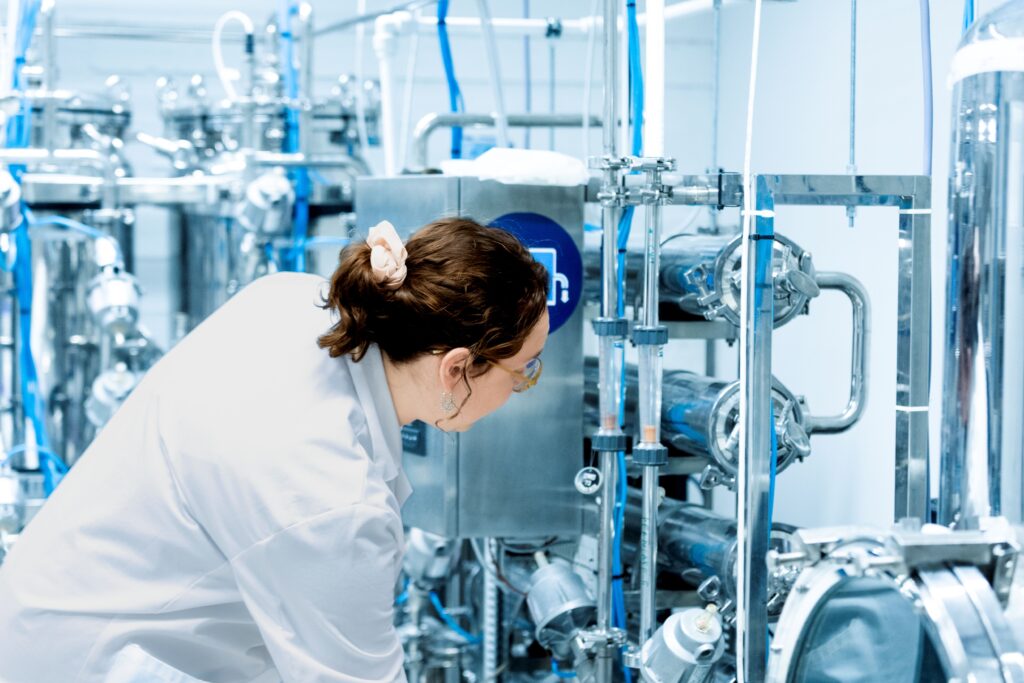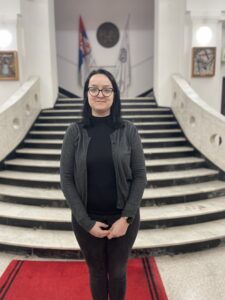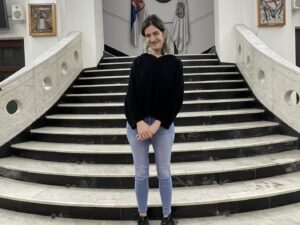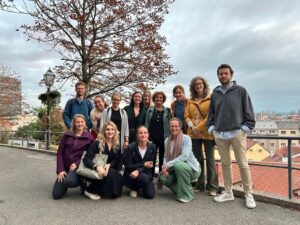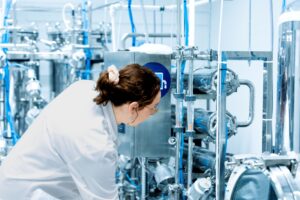
Agnieszka Cuprys (Aga) is a researcher and project manager in the Process Technology and Data Science in Water Treatment research group at the EJWP partner organization the Norwegian University of Life Sciences (NMBU). She is also an EJWP participant. Aga agreed to share and update on the work and connections of NMBU in water and projects.
How is NMBU interested in water?
There are four groups at our faculty that conduct water-related research. NMBU stands for Norwegian University of Life Sciences, and water comes under this topic. Research in this field is essential for addressing a wide range of societal and environmental challenges, from ensuring access to clean drinking water to mitigating the impacts of climate change. Water research is interdisciplinary, involving fields such as hydrology, ecology, chemistry, engineering, and public health, making it a rich and essential area of study.
How did the partnership begin between EJWP and NMBU?
My research group was leading the Erasmus + capacity building project, SMARTEN, in which one of the partner organizations was H2O-People (parent org of EJWP). Two events during this project were paired with EJWP trainings, and that’s how we got connected.
What are some outcomes so far of the partnership with EJWP?
A common project, WatNex (for Water-Energy-Biodiversity-Climate-Food Nexus) has resulted between NMBU and University of Zagreb. I also feel more confident at work, with better at prioritization of my tasks and be more oriented towards my career goals.
What are some of main focus areas of NMBU as an institution?
NMBU is committed to addressing global challenges such as climate change, biodiversity loss, and social inequality. To tackle these issues, NMBU emphasizes interdisciplinary research, innovative education, and critical thinking about sustainability. The university defines the green transition as shifting toward a society based on renewable resources within ecological limits, with a focus on photosynthesis-derived biomass.
The university aims to be a driving force for a sustainable future in a changing world. From the Faculty’s perspective, NMBU’s strategy is driven by the UN’s sustainable development goals. The Faculty of Sciences and Technology is dedicated to developing research-backed knowledge and educating professionals who can contribute to achieving these goals.
What are thoughts about collaboration in the projects with other EJWP participants?
EJWP projects have brought together experts with diverse backgrounds and skill sets, and showed various solutions to water-related challenges. These collaborations have created opportunities for networking and relationship building among our organizations and EJWP participants. Connections have already led to future partnerships and opportunities for joint projects, and I am sure this trend will continue.
Platforms like EJWP often involve knowledge transfer and capacity building. This includes training opportunities for us, young professionals, promoting skill development and knowledge exchange. On the professional level, it facilitates the transfer of technologies and best practices from academia to industry and vice versa.
Where are the synergies for water/environmental organizations in Europe?
These organizations should foster collaborative research projects that bring together researchers and educators from different organizations. This can lead to interdisciplinary research that addresses complex environmental and water issues more comprehensively. Moreover, you can see the potential synergies by creating platforms or networks for sharing environmental and water data collected by various organizations. This can improve data accessibility, quality, and utilization for research and educational purposes. We should also involve the public, because all of our efforts are for the common good. So, there should be a partnership between all these organizations on public outreach campaigns and awareness programs to engage communities and promote sustainable environmental practices.
What are some biggest challenges in your position and for NMBU? And how is NMBU supporting young professionals?
My position right now is in academia. If I want to stay in this sector, I will face these challenges:
- The academic job market is highly competitive, with more qualified candidates than available positions, which can make it difficult to secure a permanent position.
- Securing research funding is a constant challenge. Without sufficient funding, it’s difficult to conduct research, pay for lab equipment, and support graduate students/research assistants.
- The demands of academia can sometimes lead to poor work-life balance, with academics working long hours to meet research and teaching obligations.
- Building a strong professional network is crucial in academia, but it can be challenging, especially for early-career researchers who may not have connections in their field.
NMBU has many supporting systems for young professionals, like available courses, networking events, or by having the departments that help with various aspects of academia/research-related life.
What about soft skills development for the academic work place?
Academics often conduct research related to water and environmental issues and collaborate with the water sector. Cultivating soft skills is not only beneficial for individual career success but also for bridging the gap between academia and the water sector to address water-related challenges more effectively. I think the most important skill is communication. How can we bring a change when we can’t communicate our goals?

